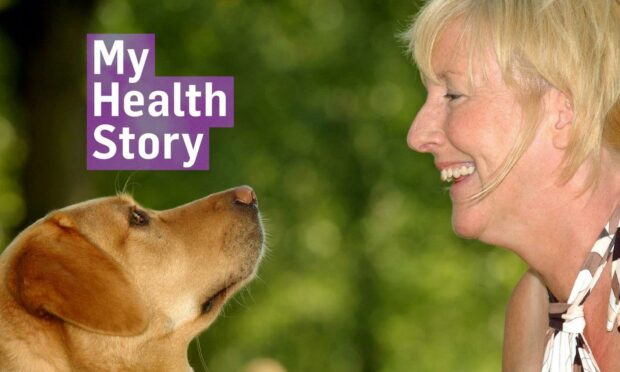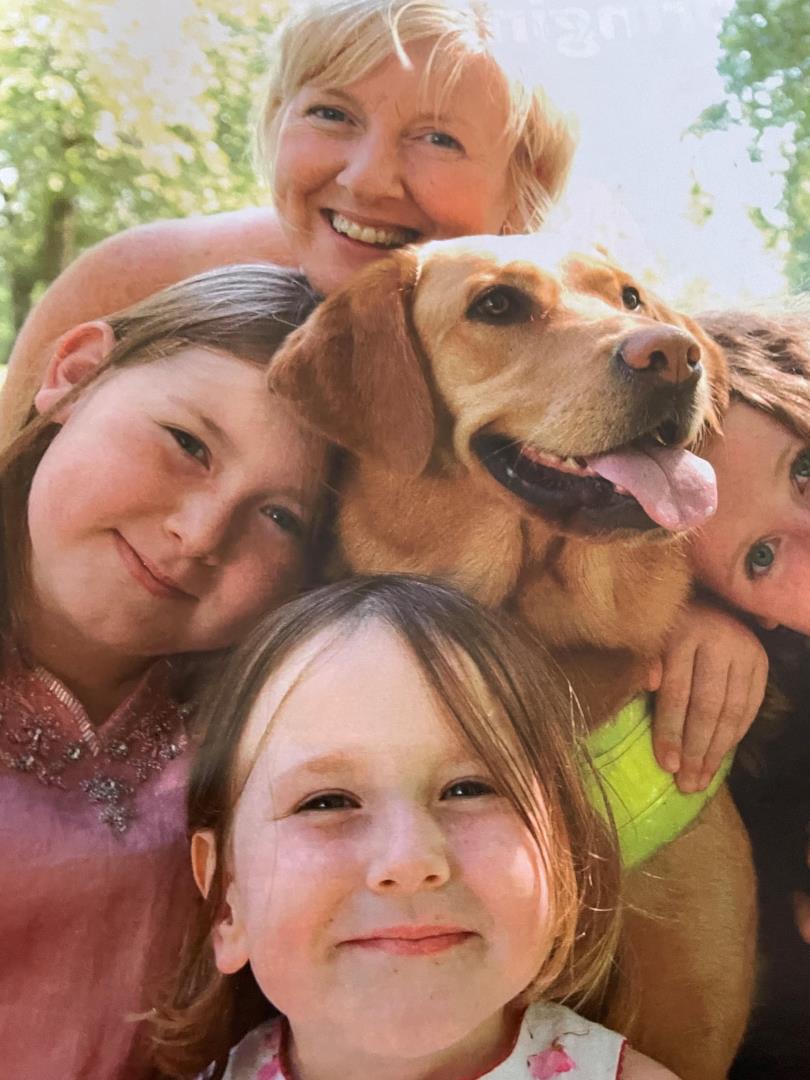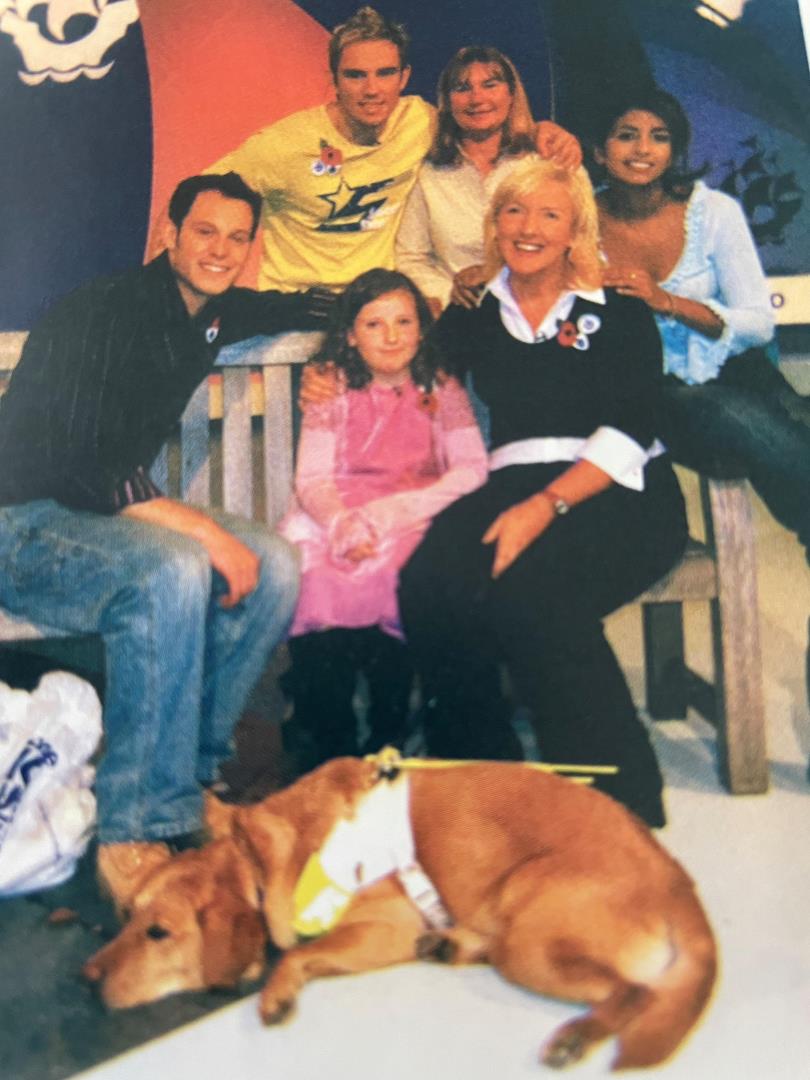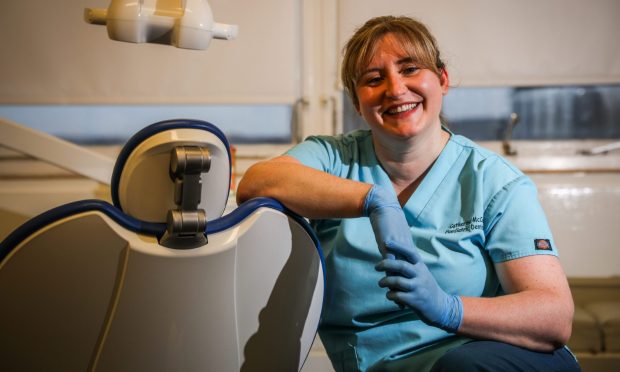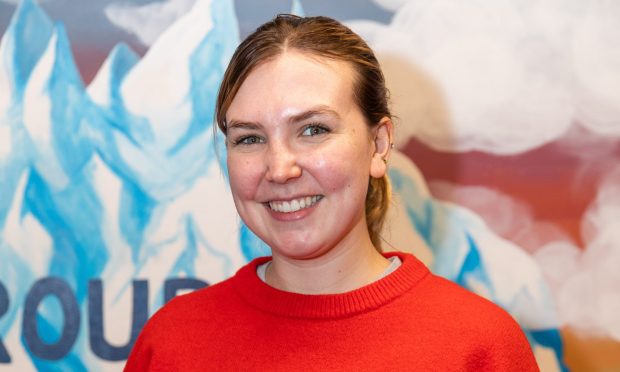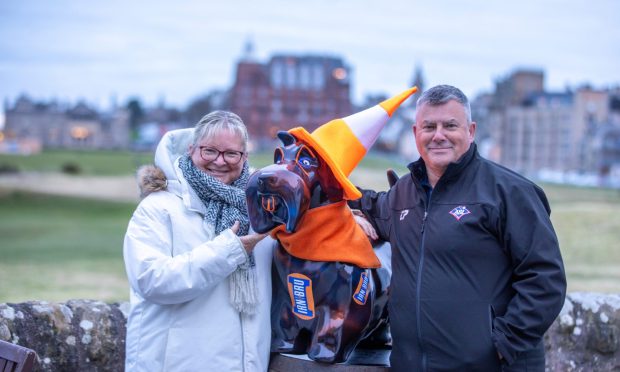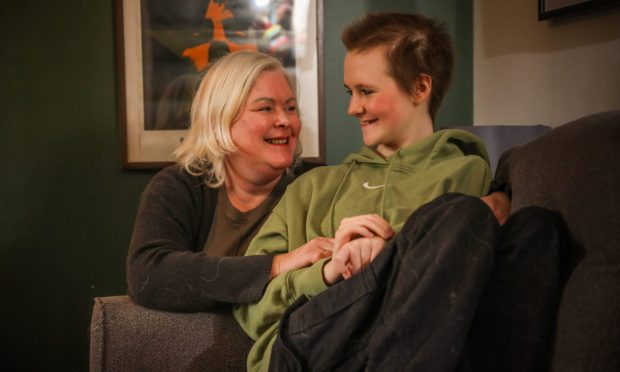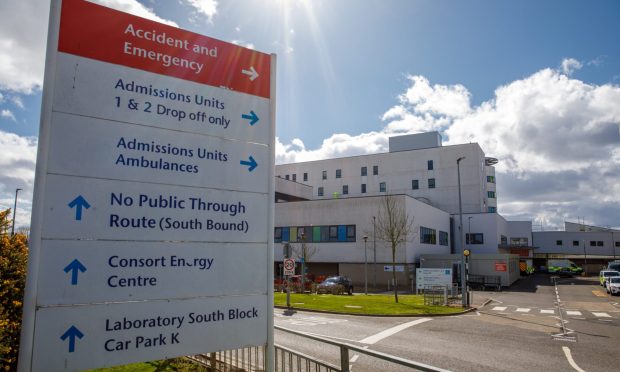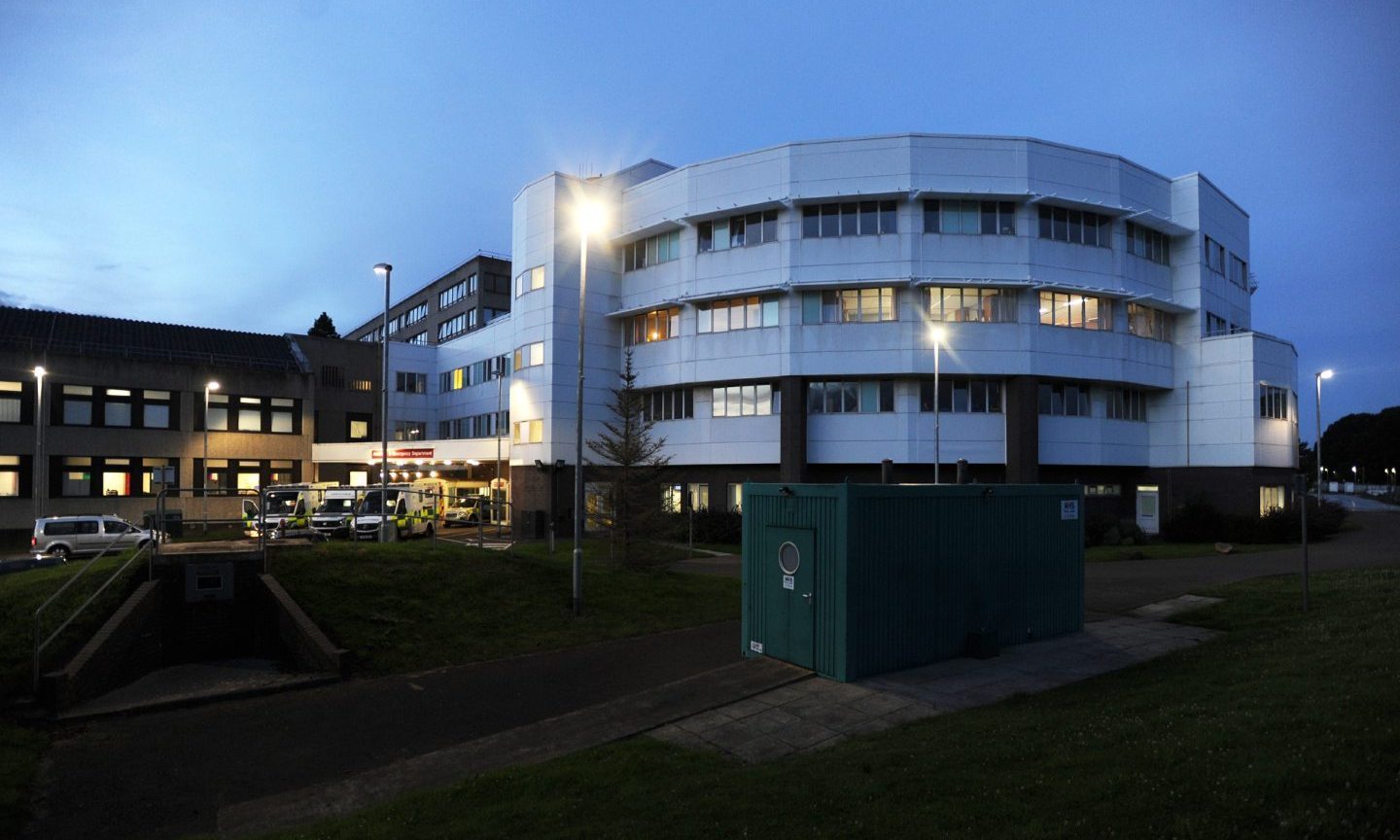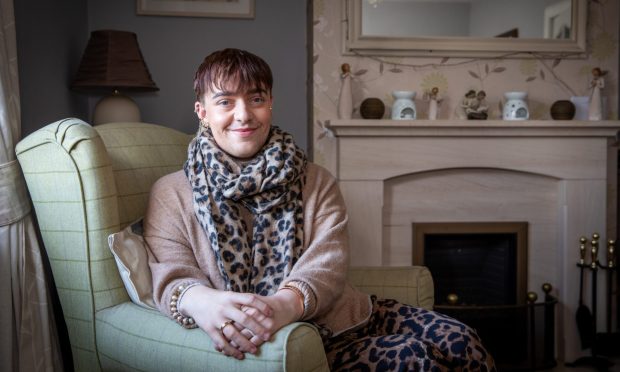Mhairi Thurston was a primary school teacher, mum to two toddlers and pregnant with her third child, when her life changed forever.
Aged just 39 she was diagnosed with Retinitis pigmentosa (RP) and told she would lose her sight.
The impact of Mhairi’s condition on her physical and mental health, and family life, meant she had to give up the job she loved at Dundee High School.
But now, as her mental health research and campaigning is nominated for a national RNIB award, Mhairi tells us:
- Of her life-changing diagnosis and difficult times that followed
- How a dog called Wanda – and TV’s Blue Peter – helped her find a new future
- About her work to support others through the emotional impact of sight loss
Dr Mhairi Thurston.
Mhairi’s life since diagnosis has been remarkable.
She says if someone had told her in 2000 how the future would turn out, she wouldn’t have believed them.
During a routine check-up at Specsavers scarring on her retina was found and she was referred to Ninewells.
“After tests, I discovered I would lose my sight and there was no cure,” Mhairi explains.
“It was so hard. I was really depressed, on anti-depressants. I thought my life was over.
‘Heartbroken: Would I see my baby?’
“I was heartbroken, thinking will I see this baby, I won’t see them grow up or on their wedding days.
“I started to use liquid level indicators, which sound an alarm so you stop filling your cup of tea. And I thought if I can’t make a cup of tea, what kind of mother can I be.
“It was a huge transition. I had to stop driving so trying to organise the girls for nursery and school was difficult. And there was nobody to talk to about it.”
A dog called Wanda began to change things for Mhairi in 2004.
“I’d felt so isolated. But when I got my guide dog Wanda people would come to me to speak to her.
“She was the star of the show, she helped me connect to other people again and I began to get my confidence back.”
‘Life will go on and I’ll be OK’
And Wanda was literally the star when she was awarded the first-ever Guide Dog of the Year award and appeared on TV’s Blue Peter.
“There was so much publicity around it,” Mhairi says. “And somehow that shifted me to thinking, ‘I’ve gone through something major and actually life will go on and I’ll be OK’.
“Wanda was special, she gave me the confidence to start a counselling skills course.”
And it didn’t stop there. Mhairi completed her Master’s degree in counselling, then PhD, conducting research into the emotional impact of sight loss.
Now a senior lecturer at Abertay University – with her research presented at international events and government committees – she is up for a RNIB recognition award for her campaign to improve mental health support for those with sight loss.
‘You can do anything’
A model she devised, identifying five different stages someone goes through on their sight loss journey, now helps train counsellors to work with people who have sight loss.
“Part of my drive was to show my children you can do anything in life – being blind doesn’t stop you – because it was possible they might get this genetic condition,” Mhairi explains.
When we talk, Mhairi is at home in Monifieth getting ready for a weekend with youngest daughter Caroline, 21, who is returning from Cambridge University where she’s studying medicine.
‘Girls were tested’ over potential sight loss
“I’m really proud of the girls,” Mhairi says. “Catherine, 24, is a primary teacher in Strathkinness, and Christina, 26, is a PhD researcher at Edinburgh University.
“Because the condition is genetically inherited we were worried for them. But when they got to an age where we were able to talk with them about it they said they wanted to be tested.”
Thankfully their tests have been negative so far, which is a promising sign, Mhairi says.
“People’s lives are turned upside down when they have sight loss. It is challenging and is death by a thousand cuts, small things add up.
“I have some residual sight and have learned my routes around the supermarket and other places, though the pandemic did hit the blind population very hard.
Strategies to look after mental health
“But my determination was to show others you don’t need to limit yourself.
“Looking after your mental health is essential, finding strategies to help,” says Mhairi, who was also diagnosed with breast cancer four years ago, and is now clear.
“One of my strategies is walking on the beach, immersing myself in nature. That is healing and grounding for people who may be anxious about life. I treasure every day.
“I’m honoured to be nominated for this award. Mental health and sight loss is such an important area of work and I hope my nomination can shine a light on it.”
The award winners will be announced at a ceremony in London on March 29 2022.
- We’d love to hear about your health journey – whether that’s wellbeing advice, insight into the challenges of living with a long-term condition or an achievement you want to celebrate. Contact us at healthandwellbeing@thecourier.co.uk
